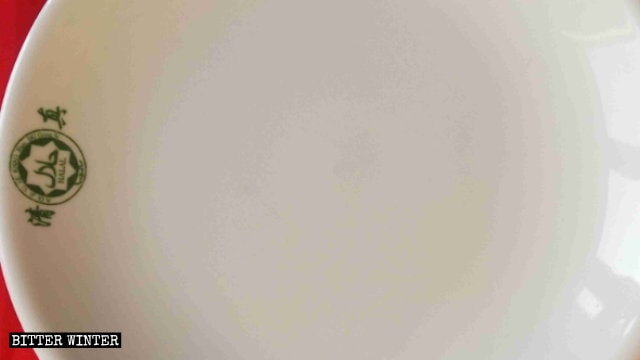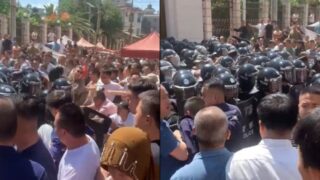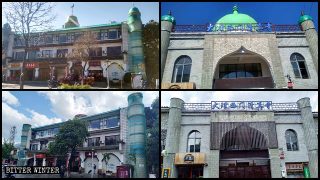The CCP is stepping up efforts to exert more control over Hui Muslims across the country, suppressing their faith and eliminating traditional culture.
by Zheng Jie
Hailed as the “good” Muslims who have integrated well into China’s official system over the past few decades, Hui Muslims have been long spared the kind of persecution that Uyghurs and other minorities in Xinjiang are subjected to. However, with the CCP’s newly-adopted legislation aiming to “sinicize” all Muslims outside Xinjiang in five years, Hui people also started feeling the heavy hand of the regime’s persecution.
Muslim symbols, writings in Arabic removed
As Bitter Winter has extensively reported, signs in Arabic and Islamic symbols have been purged from public areas in regions with large populations of Huis, such as provinces of Gansu, Shandong, Henan, and Ningxia Hui Autonomous Region.
The beautiful and vibrant prefecture-level Ordos city in southeastern Inner Mongolia is also suffering amid the ongoing anti-Muslim campaign. On October 29, 2019, the Islamic Association of the city’s Dongsheng district issued a notice, demanding managers of all halal restaurants under its jurisdiction to remove their signboards and all decorations in Arabic and with Islamic symbols within one week.


Dongsheng Mosque, an important place of worship for local Muslims, which also houses a halal restaurant, has not been able to escape the government persecution: some of its symbols have been removed, while others were covered.


The same fate befell the Donghe district in Inner Mongolia’s Baotou city inhabited by Huis, where the majority of Islamic symbols have been removed or rectified. According to some calculations, writings in Arabic have been removed from outside and inside 296 businesses in October and November, tableware with halal symbols in the restaurants banned, and Arabic symbols removed from menus.


The district’s business owners told Bitter Winter that government officials didn’t present any documentation as to why the symbols had to be removed. They only shouted that “this is the Communist Party’s policy.” “Xi Jinping’s policies on religion are more severe than Mao Zedong’s,” one of the shop owners said. “How do these symbols affect the government?”


According to an internal document issued by a provincial government in western China, “the generalization of halal is not merely a matter of religious customs,” it is “a serious issue concerning culture and even politics.” Moreover, President Xi Jinping has explicitly demanded during his visits to Hui-populated regions that the “excessive use of halal symbols needs to be dealt with and curbed.”
“The situation is worsening. One day local government officials came to inspect my shop three times,” another shop owner from Baotou said. Frequent visits and other forms of harassment are making the woman feel jittery, and she is not sure how long she would be able to keep her business.
An Islamic school shut down in Heze city
The CCP has repeatedly stressed in its top-secret documents the need to crack down on educational facilities providing teaching in Arabic, especially on those offering religious instruction.
On November 6, 2019, a private school in Heze, a prefecture-level city in the eastern province of Shandong, was forced to be closed down after more than 30 years of teaching the Quran to Muslims from all over China. After graduation, the school’s students used to be sent to serve as imams in various parts of China. But now, teachers and students were told to leave, and most had to return to their hometowns. The crescent moon symbols in the school were removed or painted over.


“The CCP is so cruel and vicious to prohibit us from cultivating students of Islam. We’ll soon have no imams in mosques, which means that Muslim faith in China is going to be extinct,” a Hui man from Heze said worriedly.









